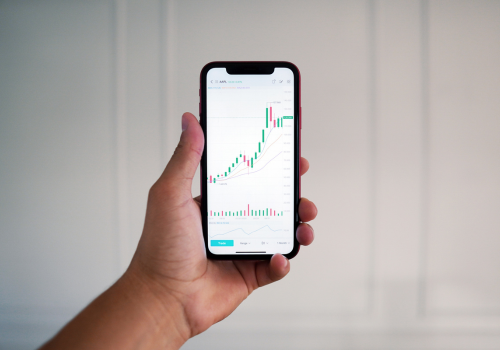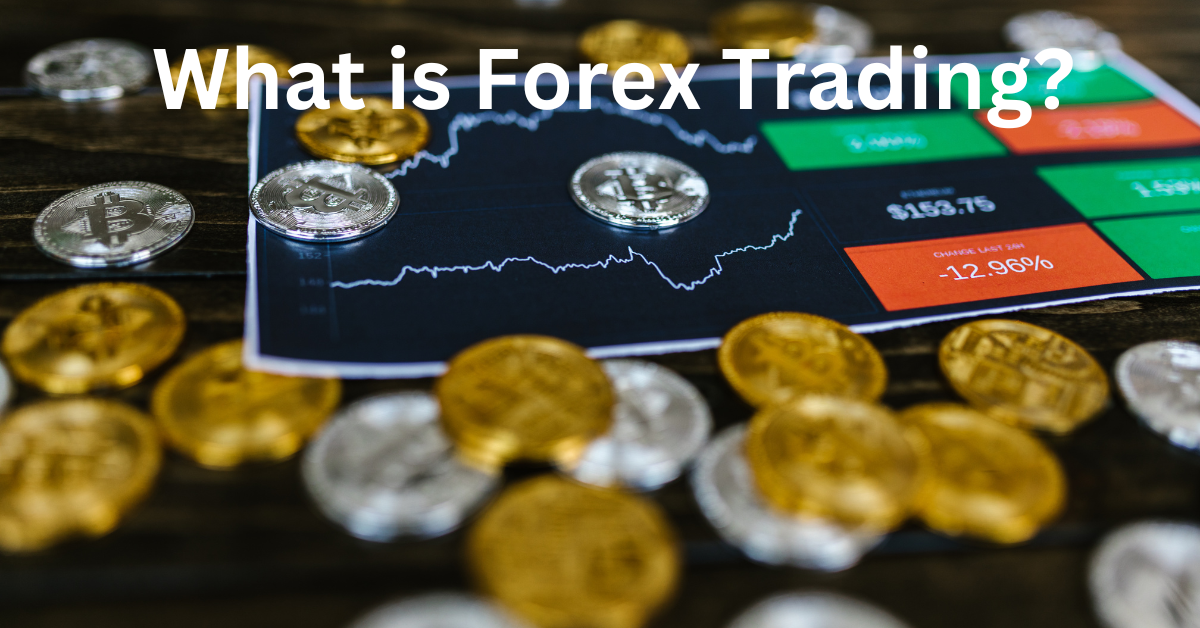What is Forex Trading? The Complete Guide
Forex trading allows investors to profit from changes in currency exchange rates. It is a large, complex, and global market that can be highly lucrative for those who understand how to trade currencies effectively. This complete guide provides an overview of forex trading, from the basics to advanced strategies.
What is Forex Trading?
- Forex (foreign exchange) trading is the buying and selling of currencies on the foreign exchange market
- It is the world’s largest and most liquid financial market, with over $5 trillion traded daily
- Traders speculate on currency pair price movements to profit from exchange rate fluctuations
- Currencies are traded in pairs e.g. EUR/USD, GBP/USD
- Forex markets are decentralized, traded OTC, and operate 24/5
How Does Forex Trading Work?
- Currencies are traded in currency pairs, with a base currency and quote currency
- The forex price is the exchange rate between the two currencies
- Prices fluctuate based on supply/demand and various economic factors
- Traders analyze the markets using technical and fundamental analysis
- Leverage allows traders to control large positions with little capital
- Profit is made from buying low and selling high (or vice versa)
Benefits and Risks of Trading Forex
Benefits
- High liquidity enables fast trade execution and flexible strategies
- Market open 24 hours a day, 5 days a week
- Leverage provides greater exposure with limited capital
- Profit potential in rising and falling markets
- Diversification – low correlation to stocks/bonds
Risks
- Leverage can magnify losses
- Volatile and fast moving markets
- Unregulated brokers and potential fraud
- Sophisticated knowledge required
- Emotional factors like fear and greed
Forex Trading Strategies
- Technical analysis – analyzing price charts and technical indicators
- Fundamental analysis – analyzing economic factors affecting currencies
- Day trading – opening/closing positions within one day
- Swing trading – holding positions for days to weeks
- Scalping – opening/closing positions within minutes
- Hedging – using one position to offset risks of another

Forex Trading Tips for Beginners
- Start with a practice account to build experience without risk
- Develop a trading plan and stick to it – avoid emotional trading
- Use stop losses and limit orders to manage risk
- Keep leverage low to avoid magnified losses
- Focus on a few currency pairs first
- Don’t overtrade – quality over quantity
Key Players in the Forex Market
There are several types of institutions and individuals that participate in forex markets:
- Banks – the biggest players, trade huge volumes for themselves and clients
- Central banks – monitor economic growth, inflation, exchange rates
- Brokers – provide trading platforms and access to markets for traders
- Hedge funds – manage large portfolios and trade based on algorithms
- Individual traders – speculate on price movements to profit from exchange rate fluctuations
- Multinational corporations – trade currencies to hedge business exchange rate risks
Major Currency Pairs
There are certain currencies that are most actively traded in forex markets:
- EUR/USD (euro/U.S. dollar)
- USD/JPY (U.S. dollar/Japanese yen)
- GBP/USD (British pound/U.S. dollar)
- USD/CHF (U.S. dollar/Swiss franc)
- USD/CAD (U.S. dollar/Canadian dollar)
- AUD/USD (Australian dollar/U.S. dollar)
These major pairs tend to be the most liquid and have the tightest spreads. They offer greater profit potential for active traders.
Exotic Currency Pairs
Exotic pairs include currencies from emerging markets or economies that are less actively traded. Some examples include:
- USD/HKD (U.S. dollar/Hong Kong dollar)
- USD/ZAR (U.S. dollar/South African rand)
- USD/MXN (U.S. dollar/Mexican peso)
- USD/SGD (U.S. dollar/Singapore dollar)
- USD/TRY (U.S. dollar/Turkish lira)
Exotics tend to have wider spreads but can also present unique profit opportunities. They add diversification to a trading portfolio.
Choosing a Forex Broker
It’s important to choose a reputable forex broker with fair fees and trading conditions:
- Regulated in their jurisdiction
- Competitive spreads and commissions
- Reliable execution and order filling
- Variety of account types
- Strong trader support resources
- Secure funding options and no hidden fees
Doing thorough due diligence helps avoid scam brokers and ensures a positive trading experience.
What is forex trading?
Forex trading, also known as currency trading, is the buying and selling of national currencies. It is the largest and most liquid financial market in the world, with trillions of dollars traded every day.
How does forex trading work?
Forex trading is conducted in pairs. For example, you might buy the US dollar (USD) against the Japanese yen (JPY), or sell the euro (EUR) against the British pound (GBP). When you buy a currency pair, you are essentially betting that the value of the first currency will rise relative to the value of the second currency.
What are the benefits of forex trading?
Forex trading offers a number of potential benefits, including:
- High liquidity: Forex is the most liquid financial market in the world, meaning that it is easy to buy and sell currencies at any time.
- 24-hour trading: Forex trading is available 24 hours a day, five days a week.
- Global market: Forex is a global market, meaning that you can trade against anyone in the world.
- Leverage: Forex brokers offer leverage, which allows you to trade with a larger position than your account balance. This can magnify your profits, but it can also magnify your losses.
What are the risks of forex trading?
Forex trading also carries a number of risks, including:
- Leverage risk: As mentioned above, leverage can magnify your profits, but it can also magnify your losses. If the market moves against you, you could lose more money than you deposited in your account.
- Currency risk: The value of currencies can fluctuate wildly, depending on a variety of factors, such as economic data, central bank policy, and geopolitical events. This means that you could lose money if the value of the currency you are trading falls.
- Broker risk: It is important to choose a reputable forex broker. There are unfortunately some unscrupulous brokers who may engage in fraudulent activities, such as manipulating prices or refusing to withdraw customer funds.
Who should trade forex?
Forex trading is not suitable for everyone. It is a risky activity that requires a good understanding of the market and risk management techniques. If you are new to forex trading, it is important to start with a demo account so that you can practice trading without risking any real money.
What are some basic forex trading strategies?
There are a number of different forex trading strategies that you can use. Some of the most popular strategies include:
- Day trading: Day traders buy and sell currencies within the same day. They typically use technical analysis to make trading decisions.
- Swing trading: Swing traders hold their positions for several days or weeks. They typically use technical analysis and fundamental analysis to make trading decisions.
- Position trading: Position traders hold their positions for several weeks or months. They typically use fundamental analysis to make trading decisions.
What is forex trading risk management?
Forex trading risk management is the process of taking steps to minimize your losses. Some important risk management techniques include:
- Stop-loss orders: A stop-loss order is an order to sell a currency pair if its price falls below a certain level. This can help to limit your losses if the market moves against you.
- Take-profit orders: A take-profit order is an order to sell a currency pair if its price rises above a certain level. This can help you to lock in your profits if the market moves in your favor.
- Position sizing: Position sizing is the process of determining how much money to risk on each trade. It is important to size your positions so that you can withstand a series of losses without blowing out your account.
- Money management plan: A money management plan is a set of rules that you follow when trading forex. It should include your risk management strategy, position sizing strategy, and exit strategy.
What are some tips for beginner forex traders?
Here are some tips for beginner forex traders:
- Start with a demo account
- Develop a trading plan
- Learn about technical analysis and fundamental analysis
- Use risk management techniques
- Don’t overtrade
I (Susanna) was inspired to start “Best Way to Make Money Online” by my passion for entrepreneurship and my desire to provide practical advice and strategies for individuals seeking financial success in the digital realm. I believe in the power of collaboration and sharing ideas, emphasizing the importance of knowing one’s purpose beyond just profit. My background in language learning and online education has equipped me with the skills and knowledge to create a platform that empowers others to navigate the online landscape effectively and achieve their financial goals.

